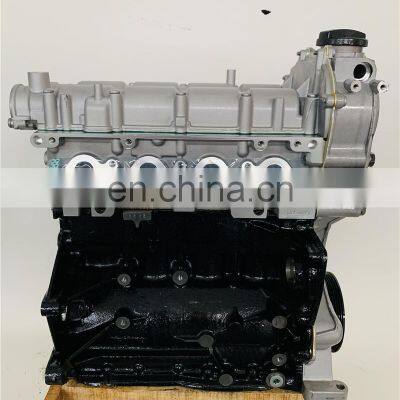Just How a Clp Engine Can Boost Performance in Numerous Industries
The arrival of CLP engines notes a substantial shift in operational efficiency across various industries, driven by their capability to optimize fuel usage and minimize downtime. Industries such as production and logistics stand to acquire significantly from their robust style and consistent power output, which promise to streamline procedures and enhance efficiency. As organizations increasingly prioritize sustainability together with performance, the role of CLP engines comes to be much more vital. What stays to be seen is just how these improvements will certainly form the future landscape of commercial procedures and their effect on wider economic fads (clp engine).
Summary of CLP Engines
CLP engines, or Continual Liquid Propellant engines, stand for a considerable improvement in propulsion innovation, specifically for space applications. These engines use a continuous feed system that enables the sustained expulsion of propellant, causing enhanced efficiency and efficiency contrasted to typical solid or hybrid propulsion systems. By preserving a continuous flow of fluid propellant, CLP engines can attain extra specific drive control, which is vital for navigating spacecraft in numerous objective circumstances.
The style of CLP engines integrates advanced products and cutting-edge fuel monitoring systems. clp engine. This leads to minimized weight and enhanced dependability, essential variables for long-duration space objectives. Moreover, the continuous procedure minimizes the danger of combustion instability, an usual challenge in conventional rocket engines.

Benefits in Production
The manufacturing of Continuous Liquid Propellant (CLP) engines presents several remarkable benefits that improve both performance and cost-effectiveness. One of the main benefits is the streamlined manufacturing process, which minimizes the intricacy connected with conventional propulsion systems. By using liquid propellant, producers can accomplish higher accuracy in engine efficiency, bring about optimized power output and lowered waste.
In addition, CLP engines help with a greater level of modularity, permitting less complicated assimilation into various manufacturing lines. This adaptability can substantially lower preparations and enhance general functional adaptability. Using CLP innovation additionally often tends to reduce the demand for considerable upkeep as a result of less moving components, which equates right into reduced downtime and functional expenses.

Applications in Logistics
Leveraging Constant Liquid Propellant (CLP) engines in logistics offers considerable benefits in operational effectiveness and integrity. These engines give a durable option for various transport needs, enabling the smooth motion of goods across huge distances. The integral style of CLP engines enables consistent power output, which translates right into smoother and extra foreseeable transportation routines.
Among the crucial applications of CLP engines in logistics remains in sturdy freight transport, where they can drive both ground and airborne vehicles. Their capability to keep high performance under differing lots conditions makes certain that distribution timelines are satisfied, thereby improving consumer fulfillment. In addition, CLP engines can be incorporated into automated logistics systems, facilitating real-time monitoring and optimizing route planning.
Additionally, the toughness of CLP engines decreases upkeep downtime, enabling logistics firms to maximize their functional capacities. This is specifically valuable in warehousing operations, where efficiency in dealing with and carrying items is critical. As logistics remains to progress, the integration of CLP engines represents a forward-thinking strategy that not only improves performance but also his explanation sustains the market's expanding demands for integrity and speed.
Effect on Power Performance
How do Continual Fluid Propellant (CLP) engines enhance energy performance in transport? CLP engines utilize a consistent circulation of fluid fuel, enhancing combustion procedures and keeping a steady thrust result. This design decreases energy losses connected with standard burning engines, where fuel delivery can differ and cause inadequacies.
The check over here constant procedure of CLP engines permits an extra effective thermal cycle, leading to higher details impulse compared to conventional engines. clp engine. This converts to minimized gas intake for the same amount of work done, considerably decreasing operational prices throughout different transportation fields, consisting of aeronautics and maritime markets
Additionally, the capability of CLP engines to keep optimal efficiency under differing load problems decreases the requirement for regular acceleration and slowdown, additionally enhancing gas effectiveness. Boosted power efficiency not just adds to cost savings yet likewise causes lower greenhouse gas discharges, lining up with international sustainability objectives.
Future Trends and Innovations
Emerging developments in Continual Liquid Propellant (CLP) engine innovation pledge to change the landscape of transportation effectiveness and sustainability. As industries pivot towards greener alternatives, CLP engines stand at the center, incorporating cutting-edge materials and design methods that improve efficiency while minimizing environmental influence.
One of one of the most promising patterns is the fostering of hybrid systems that integrate CLP engines with sustainable energy resources. This synergy can maximize fuel usage and decrease exhausts, aligning with worldwide sustainability objectives. Additionally, innovations in computational discover this info here liquid characteristics (CFD) are helping with the style of more aerodynamically reliable engines, resulting in decreased drag and boosted fuel performance.
Furthermore, the development of wise monitoring systems is set to improve functional performances. These systems utilize data analytics and IoT technology to optimize engine performance in real-time, guaranteeing that the engines operate within their most reliable parameters.
As study proceeds to discover alternate propellant solutions-- such as biofuels and synthetic fuels-- the future of CLP engines looks encouraging. By harnessing these advancements, sectors can not only enhance their performance yet also contribute substantially to a cleaner, a lot more sustainable future in transportation.
Final Thought
To conclude, CLP engines represent a considerable innovation in performance across numerous markets. Their capability to maximize gas intake and reduce operational costs, integrated with a constant feed system, boosts power output and operational reliability. The integration of advanced materials and fewer moving parts lessens upkeep demands, while positioning with sustainability objectives settings CLP engines as an essential modern technology for the future. Proceeded advancement in this area assures more renovations in performance and ecological efficiency.